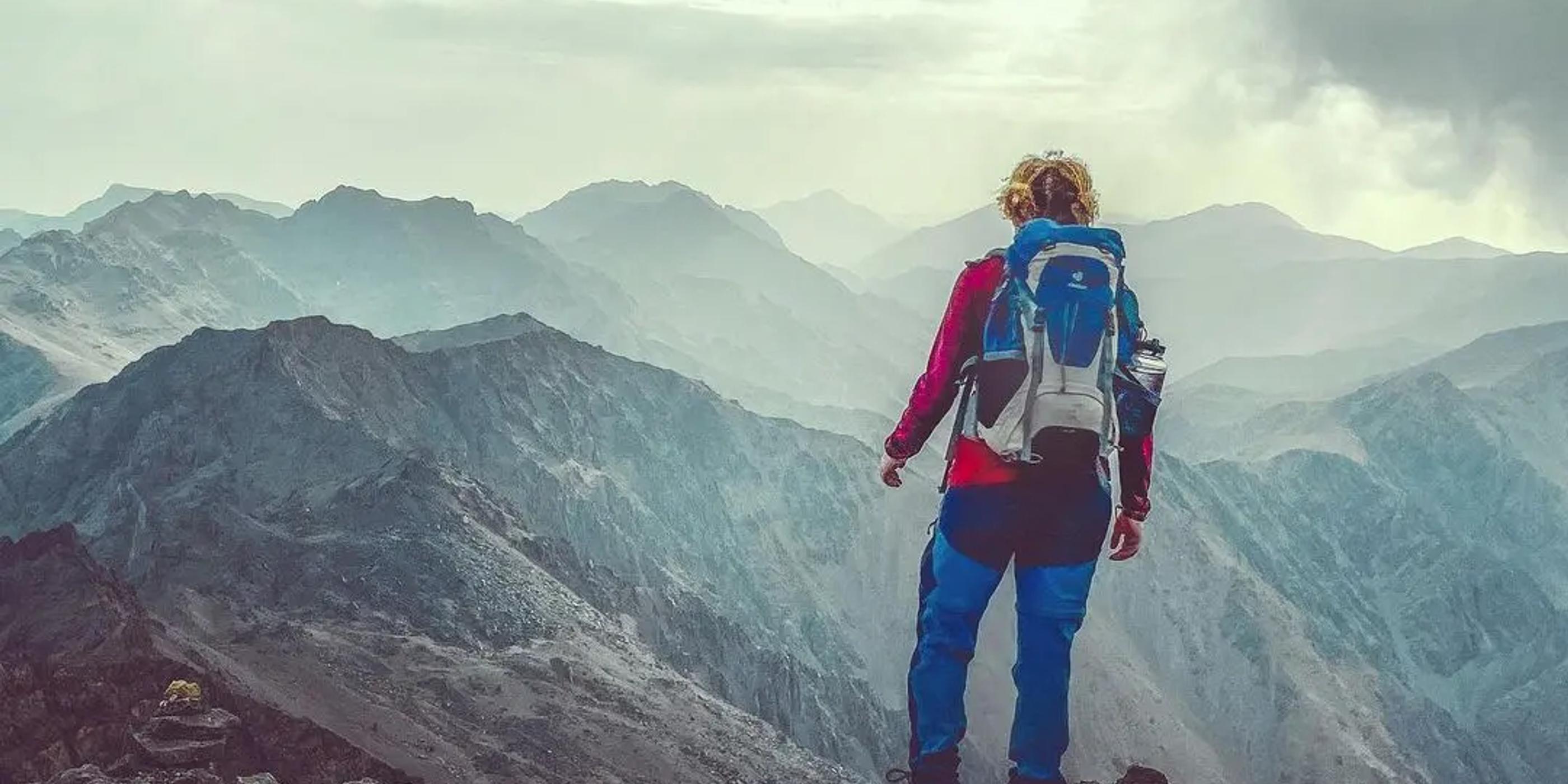
Is Mount Toubkal Safe? Advice From a Local Expert Guide
Climbing Mount Toubkal: The Risks
Altitude Sickness - What To Expect?
Altitude sickness can affect some people on high mountains. At 4,167 m on Mount Toubkal, mild symptoms are possible, but most trekkers are fine if they acclimatise (for example, by spending a night at the refuge) and pace themselves. Go steady; it’s not a sprint
Be aware of the symptoms of altitude sickness - headache, insomnia and breathlessness, and let your guide know if you get them. Like we say though, you’re unlikely to have serious issues that can't be resolved by just descending.
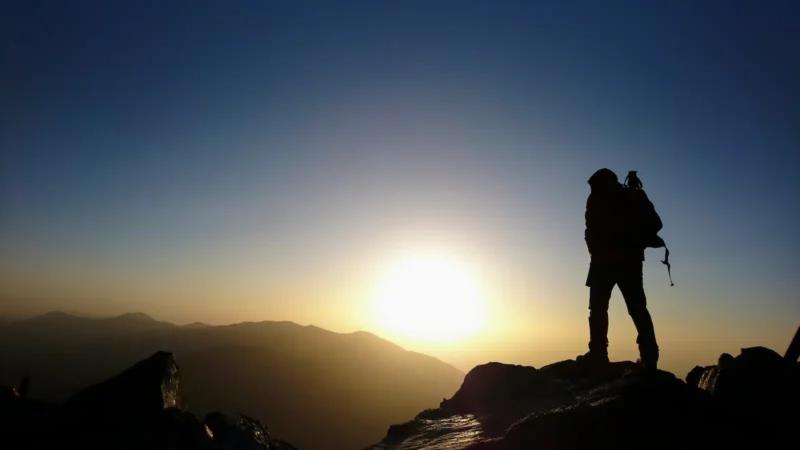
Mount Toubkal Ascent: Is it Technical?
Mount Toubkal's North Africa's highest peak but you don't need to be a mountaineer to reach the summit. The ascent is straightforward - no technical climbing - so you won’t need ropes, carabiners or a climbing harness! There’s an obvious path to the top - you’ll encounter some loose scree and large rocks but nothing that could be called a scramble.
Path signage on Mount Toubkal has been criticised in recent years and some hikers have wandered off route, but this is no longer a problem as hiring a guide is a requirement and they (should) know the mountain so well they’ll keep you on track.
However, it’s not a walk in the park - be prepared for a long climb with some steep bits. It’s a decent-sized mountain so it takes some hours to climb!
And of course, what goes up must come down, so keep something in the tank for the descent. You’ll need a good hillwalking level of fitness, so you may need to get yours in shape before you go.
Are there any other risks?
As with any mountain environment, the weather can change quickly and the Atlas Mountains of North Africa are no exception.
The wind can pick up, temperatures can drop and storms can blow in. That lovely view can disappear in minutes.
You’ll need to be equipped for any weather - waterproofs, warm layers, hat and gloves are recommended even for summer climbs.
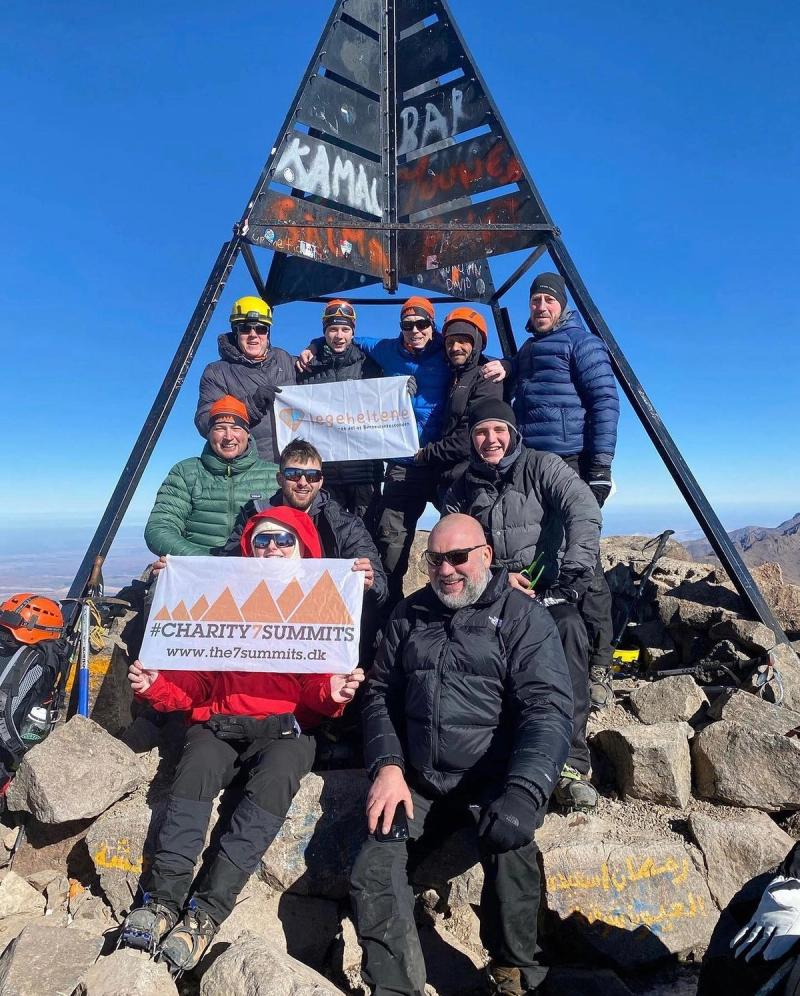
Take a head torch in case you lose the light, especially in winter, early spring, and autumn.
Winter brings its own set of challenges - extreme cold (it can be -10 on the summit), wind chill, potential snow storms, snow and ice on the trail. You’ll need warmer gear plus crampons and an ice axe.
Fancy climbing the highest peak in North Africa in winter?
If you do you Mount Toubkal Winter Trek with Call to Adventure and your ice axe and crampon hire are included in the price. The guide and they’ll train you up on using them - beginners welcome!
Has Anyone Died Climbing Mount Toubkal?
Mount Toubkal has had a few fatalities but these are rare. In recent years a couple of people have fallen to their deaths on the mountain when they chose to climb to the summit of Mount Toubkal without a registered guide.
There was a tragic incident in 2018 when two Scandinavian girls were found dead in the foothills of the mountain.
This led to the Moroccan Government introducing the rule that Mount Toubkal can only be climbed with a registered guide.
To put things into perspective, a handful of hikers also lose their lives in the mountains in the UK each year.
There’s always a risk, but being aware of the dangers and following instructions from your guide will keep you safe.
Preparing to Climb Mount Toubkal
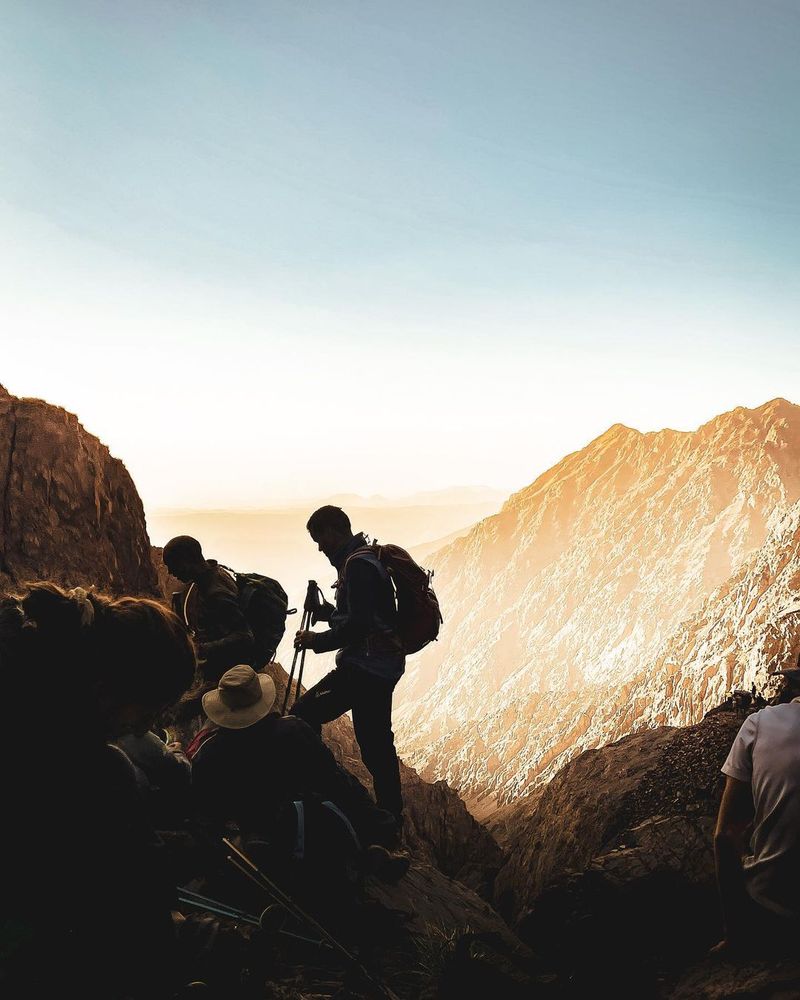
Physical and Mental Preparation for Climbing Mount Toubkal
To get the most out of your Mount Toubkal trek and climb it wouldn’t hurt to get in shape before you go.
Cardio exercises are great for building fitness and stamina. Running, cycling and swimming are all good.
Strength training exercises strengthen muscles and reduce the risk of injury. Focus on your legs and core.
The very best way to train for a hike is to hike! Go for longer walks at weekends, increasing the distance each time. Get out into some hills and gnarlier terrain - that’ll prepare your body for summit day.
Go out on days you’d much rather stay home, the wetter and windier the better. Get used to being challenged and uncomfortable on your walks and carrying on anyway. Nothing builds mental fortitude better than this!
Remember to stretch before and after exercise - this may help prevent injury.
During your Mount Toubkal trek and climb, stretch those muscles out at the start and end of each day. You might feel silly but it works!
Still Want to Climb Toubkal? Essential Gear and Equipment
- Think layers. The weather in the Atlas Mountains can be changeable so have some moisture-wicking clothing on hand
- Layers include a warm fleece, down jacket and wind and waterproof shell jacket
- Worn in walking boots with ankle support are essential.
- Bring a head torch, warm hat and gloves for summit day - it can be cold on the summit of Mount Toubkal and you may need to set off or finish in the dark
- For winter climbs of Mount Toubkal you’ll need warmer gear, 4-season sleeping bag, crampons and ice axes
- Trekking poles can take the strain off your joints and help your balance
If you do your Mount Toubkal Trek with us you can hire gear at the time of booking or when you're there if you prefer
If you do a Mount Toubkal Winter Trek with us, you'll get ice axe and crampons included in the price and you don't need any experience with them, we'll show you exactly how to use them.
When to Climb Mount Toubkal
Seasons and Weather
Most people trek the High Atlas Mountains and climb Mount Toubkal between May and September as the weather is warmer and there’s less snow.
Spring and autumn are the best for most people, July and August can be very hot and the trails will be busy.
A winter ascent of Mount Toubkal can be a great adventure, but conditions will be more challenging with snow and ice on the trails. You’ll need crampons and ice axes.
Logistics and Planning to Climb Mount Toubkal
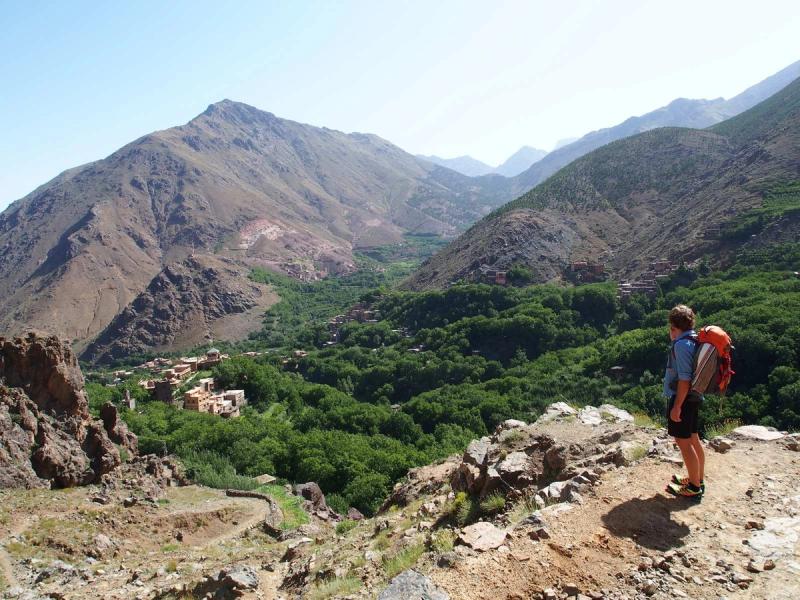
Imlil and the Start
The mountain village of Imlil is easy to get to from Marrakesh, a shared taxi is the easiest option.
The journey takes around 90 minutes and will cost between 50 MAD and 300 MAD.
There’s also a bus service from Marrakesh. If you climb Mount Toubkal with Call to Adventure we’ll get you to Imlil and back as part of your trip.
Local Guides and Porters
Why a Local Guide Can Make Your Mount Toubkal Climb Safer
Local guides know Mount Toubkal like the back of their hand and are trained in all aspects of mountain safety, plus first aid. They’ll be monitoring the wellbeing of the group all the time, and if they spot anything amiss they’ll know how to deal with it.
Although serious altitude sickness is very unlikely on Mount Toubkal, they’re trained to spot and treat any symptoms very quickly.
A guide will be able to administer first aid and get you to safety if needed. Their expertise can literally be a life-saver.
You won’t need to worry about route finding - just follow them and enjoy the views. Your stuff will be carried for you so you’ll be able to walk with just a day pack, which makes the climb a lot easier.
Your guide will be assessing the weather and conditions on your Mount Toubkal ascent so they can be ready to adapt the itinerary as necessary.
A good local guide can give you some valuable insights into local culture which will enrich your Mount Toubkal trek. Oh, and the crew will prepare delicious meals - think lovely salads and tajines - and lashings of mint tea!
Call to Adventure work with hand-picked local guides with years of experience under their belts
Ready to climb Mount Toubkal with us?
Safety on Mount Toubkal
Emergency Protocols and Rescue
Since the introduction of the ‘registered guide only’ rule, control points operated by local authorities keep a record of who’s on Toubkal at any one time.
There are control points at Imlil, Sidi Charamouch and the Mountain Refuges, where you’ll need to show your passport and your itinerary.
This means no one can climb Toubkal or spend time in the High Atlas Mountains without a guide.
In case of an emergency, a mountain rescue service is available in the form of a private helicopter from Marrakesh.
It will pick up casualties from the mountain refuge so if you’re injured higher up on Mount Toubkal you’ll need to be helped down to the base camp.
So is Mount Toubkal safe? Yes, there are some risks, but with good prep and local mountain guides, it’s all manageable.
Want more tips from our expert guide? Read our Ultimate Guide to Toubkal!
Or if your want to learn more about our Toubkal trips, click the links below
About the Author

George Beesley
Adventure Lover & Founder of Call To Adventure
George just bloody loves a bit of adventure! Imagine someone who not only hikes up mountains for breakfast but also bikes across continents. Got a case of wanderlust? This guy's been to over 50 countries and comes back with stories that'll make your grandma want to go bungee jumping.
![Climb Mount Toubkal Tips From Local Expert [30 Years Experience]](https://cdn.sanity.io/images/f5ovd1ei/production/583602f19db9ccc67b832053ccba8ca25e090833-1660x1067.webp?w=80&h=80&fit=crop&auto=format)

